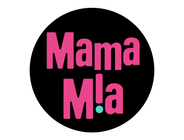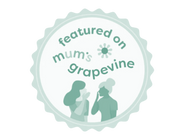We receive so many follow up stories from tired parents, after we have helped them through sleep issues in our private Facebook group and DM services. Here is a real life story from mum Belinda, regarding the bedtime battles and early waking of her 19 month old Daniel.
Please note: we share these case studies in the hope it may help other families with ideas and tips. We are not medical professionals. We work closely with a team of sleep consultants and our staff have behavioural science and early childhood qualifications. Not everyone parents in the same way, so please do not judge the parenting choices they have made in the best interests of their babies and their families.

Daniel: 18 months
Nap: 10.30am - 12.30pm
Bedtime: 7pm
Daniel was a healthy, active toddler who had recently gone from 2 day naps to one, which is normal at this age. He was so tired and grumpy by mid-morning, that mum Belinda would put him in for a nap at 10.30. He was easy to soothe with a quick cuddle, head massage, and he fell asleep with his favourite sleep toy. He would wake after 90-120 mins.
The problem came however in the late afternoon and evening, when Daniel would almost become hyperactive. Overtiredness in a toddler looks like hyperactivity. That's because overtiredness is the build up of cortisol, a hormone similar to adrenaline that triggers the "fight or flight" response in our bodies and it will seem like your toddler has had a shot of coffee right before bedtime.
Belinda had tried to bring bedtime forward, and then pushed it back to calm him down, but nothing worked. After dinner and bath, he would cry, fight, shake, stand up in his cot and call out. Eventually Belinda or her husband would have to sit beside his cot and pat him, until he drifted to sleep, sometimes 90 minutes later. He would often wake during the night and need resettling for 30-60 mins, and then be up by 5.30am.
It was exhausting, especially with a 4 year old also in the house.
Transitioning from 2 to 1 day nap as a toddler is tricky. After getting an overview of Belinda's situation, the first thing we checked was the recommended nap time for toddlers when transitioning to 1 day nap, which was closer to midday. Daniel was exhausted by 10.30am and Belinda didn't think she could hold him out any longer. especially as he woke at 5.30am. We advised to gradually move Daniel's nap back by 15 minutes every couple of days to give his body clock a chance to reset and adjust. Also, to hold off on any screens or TV in the early morning until after 10am. Then when he was getting tired at that time, let him sit and watch The Wiggles (his favourite) which kept his attention for 20 mins. Then an early lunch and nap. The first few days his cot was in by 10.45, then 11am, then 11.15am, and within 3 weeks he had pushed his Wiggles viewing time back to 11.30am, lunch at 12pm and nap at 12.30pm. He was sleeping until 2/2.30pm.
This gradual change of a later nap meant that he wasn't overtired by late afternoon, keeping his cortisol levels low and his temperament calm as the dinner and bath time approached. By 7 pm, he was naturally tired, as he had been awake and active for 5 hours, and bedtimes were calm once again. Because he was falling asleep with low cortisol levels, the night waking dropped away, and thanks to some block out blinds over his windows, he was no longer waking at dawn with he sunrise, but sleeping until 6.30am.
All of these changes happened with consistency and a united approach by Belinda and her husband. There were days and nights when it didn't all go according to script, but they calmly persisted, and everyone is happier for it.
Belinda also added a few tools to assist both naps and night sleep, and early morning waking. As mentioned above, we advised her to purchase Black Blockout Blinds to cover the windows of the nursery. Black cardboard taped up is also a cheap and effective solution. The absence of dawn light allowed Daniel to sleep later, as his body clock had been reset for the entire 24 hour period.

Belinda also purchased our Three Sheep Sound Therapy Unit, to give consistent and calming noise for the day nap and night sleep. Daniel's favourite sound was rain, and Belinda kept the volume on the louder side of average. This has the dual benefit of Daniel not hearing the early morning birds chirping. or the traffic on the road outside, or the occasional early morning ambulance driving by, as the noises were blocked by the sound machine. During he day when the sound machine played, it also meant her 4 year old could play around the house without having to be super quiet for fear of waking his little brother, as the rain sound calmly masked all of those noises. Genius.

Belinda also purchased our HUSH which created purified, ultrasonic mist combined with the calming, pure essential oils, and a deep red night light. The low red night light was not distracting (like the day light coming through the windows) and actually had a calming effect, as that colour night light increases the production of melatonin (the sleep hormone) in the body.
The key to the success of Daniel's sleep transition lay in Belinda learning to view sleep in a holistic 24 hours eco-system, and make small adjustments over time, plus introduce proven, independent sleep aids to assist the process.
The main 4 things that needed adjustments were all very inter-related:
1. The nap time moving back gradually was the key to everything else being able to fall into place
2. Bedtime needing some gentle coaching to avoid stalling ("one more story Mum!!) and the need for Mum or Dad to sit with Daniel while he fell asleep. Belinda came back into the room after 2 minutes, to check, head massage for 10 seconds, no talking or engagement then calmly leave the room, then same again after 3 mins, then after 4 minutes, then after 5 minutes. By the end of week 2, she usually only had to come back in once, and Daniel was asleep
3. The night wake simply required a limited-response approach, but seeing as Daniel was actually well-placed to go back to sleep, this was done quickly and with minimal fuss
4. The early morning wake had become habitual, so shifting the nap back and minimising the overtiredness at bedtime helped remove the physiological reason for early wake. The blockout blinds and noise machine eliminated outside disturbances. A bit of coaching that it was still night time was needed to help Daniel learn to go back to sleep, and the new get up time is around 6.30am.
Belinda and her husband feel like they have a different toddler on their hands - because they have!! He is happier, more adventurous and easier to manage in all aspects from cognitive learning, attention span, temperament, physical play, meal times and of course, bedtime. Daniel is also playing better with his 4 year old brother and not displaying so many meltdown. The odd argument between siblings still happens a few times a day of course!!
Belinda can't believe the change in her little boy:
"This was actually a lot easier than I thought it was going to be! I was expecting to have to do some sort of regimented sleep training or crying out method with him and I had braced myself for that, but all we needed to do was change his nap timing and use a few simple settling techniques and sleep aids in this room! I can't believe it!"




















